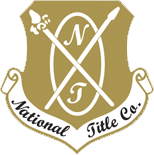Why Do I Need Title Insurance For A Newly Built Home? — First American Title
Construction of a new home has the potential exposure to unique title pitfalls that may impact the lender and owner.
You may think you are the first property owner when you are constructing or buying a newly built home. However, there were most likely many prior owners of the unimproved land. A title search will uncover any existing liens and a survey will determine the boundaries of the property you’re purchasing.
